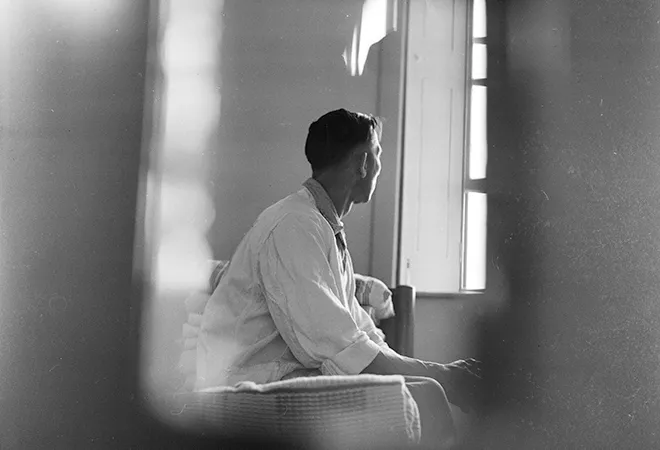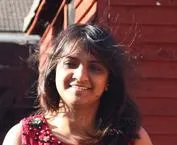
As the world comes to a grinding halt, leaders and experts are grappling with the unprecedented challenges of COVID19 crisis. From flexing muscles to obtain medical equipment, gears, and drugs, from other countries to revamping domestic infrastructure, governments across the global are leaving no stone unturned to meet the growing demands of the ongoing health emergency.
In addition to defining social standards that of physical distancing and mandatory wearing of masks, countries have even acknowledged the mental battle associated with COVID19. Governments, in collaboration with mental health professionals, have launched helpline numbers to address mental health concerns throughout the population. Yet the stigmatization of COVID19 is quite evident. Fear of contracting or having contracted the COVID19 is already seeing individuals committing suicides, facing social ostracization, and being denied of services like houses on rent.
Anticipated, internalized, and experienced stigma associated with infectious disease outbreaks can undermine ongoing efforts to contain the outbreak especially those directed towards testing and treating. This is a trend which we are already witnessing in India where individuals who could have been infected do not come forward for testing and treating, some hide traceability, some flee after being brought to isolation wards as a containment measure, and many who are being treated for COVID19 flee treatment units.
However, India’s battle to contain the pandemic goes beyond the negative impact of COVID19 stigmatization. The battle has got to do with India’s mental health care system, and India’s attitude towards seeking and having sought mental health care, both dismal at best. Available and accessible mental health support can be a long drawn out expensive privilege affair of the few. Even when the government does step in to provide mental health care throughout the population particularly to the most vulnerable and underprivileged sections of the society, accessibility can be a challenge. For example, government has
expressed that various bodies both at the center and state level come together to provide for counseling support to migrant workers displaced by COVID19. But how is the government hoping to make the available service accessible? Displaced migrants are as diverse as India’s geography which means that language spoken and written by these migrants could be one of the many accessibility issues. Availability does not necessarily mean accessibility.
Assuming that accessibility to mental health care is 100%, India’s mental health battle continues to remain murkier given the social stigma associated with mental health care, and plagued with ignorance and indifferent attitude towards mental health care. Individuals who seek or have sought mental health support are looked down upon with suspicion, fear, rejection, naming and shaming, and at times even hatred, dissuading many from seeking help.
The enormous mental battle required to deal with COVID19, coupled with India’s perception towards mental health care and practices, means that India not only stares at difficulties in its ongoing efforts to curtailing the pandemic but also stares at a future where the trauma of having lived through the pandemic, regardless of whether one was infected or not, would define India’s post-pandemic world, and consequently its engagement with the world.
Despite human resilience particularly in global traumatic events like the looming COVID19 crisis, human vulnerability, both physically and emotionally, cannot be taken for granted. Humans unknowingly hold onto trauma, the trauma of having survived an event for which they were not prepared for. The sub-conscious nature of trauma changes human behavior, rather every conversation the individual has with themselves and with people surrounding and supporting them. Not to forget the physiological response of the trauma and the subsequent chicken-egg problem of trauma and physiological disorder.
Arguably our experience in the pandemic would determine our actions and reaction post the pandemic. Nonetheless, the conversation we individuals who are living through the pandemic will have with ourselves from now on would be different to the conversation we would have had in a world where pandemics was only a word for scrabble. Our conversation with our friends and family, our neighbors, will have a different connotation, weighed in with gratitude and forgiveness. Our shopping bags might start to look differently, weighed in with needs than wants. So would our expenditure portfolios, weighed in savings than the next exotic summer vacation for the social media. We might for a change start to observe the journey to our destination. Possibly even be available to humanity altruistically. Our world’s order would not be the same anymore. And just like the world would try to find a new economic and political order, we would also be searching, and probably being given to some extent, our world’s new order.
The impact of the trauma from the pandemic can hopefully be minimized. Creating awareness and mental health literacy would help. But what would greatly help is if leaders actively encourage mental health support if and when they feel anxious or stress thus reducing social stigma. Already existing resources like ASHA and anganwadi workers, and instituting mental-health self-help groups akin to the VISHRAM model, can help in providing support across all strata of the society.
As experts chip in – debating about a post-pandemic world and India’s role in it, costs of CoVID19-trauma remains uncalculated. Humans are beyond data-points, and relief packages not taking into account this trauma-cost, might miss the point of providing any relief. We might be able to find a medical solution to the pandemic, an economic solution to the economic slowdown, what we will always struggle is to overcome the COVID19-trauma this pandemic will leave us with as a parting gift. We individuals living through the pandemic are going to be torch-bearers of inter-generation trauma actively transmitting COVID19-trauma for generations to come. Our fight to this unseen real battle starts now itself, and it can start with just a conversation with no attached stereotyping and social stigma.
The views expressed above belong to the author(s). ORF research and analyses now available on Telegram! Click here to access our curated content — blogs, longforms and interviews.



 As the world comes to a grinding halt, leaders and experts are grappling with the unprecedented challenges of COVID19 crisis. From flexing muscles to obtain medical equipment, gears, and drugs, from other countries to revamping domestic infrastructure, governments across the global are leaving no stone unturned to meet the growing demands of the ongoing health emergency.
In addition to defining social standards that of physical distancing and mandatory wearing of masks, countries have even acknowledged the mental battle associated with COVID19. Governments, in collaboration with mental health professionals, have launched helpline numbers to address mental health concerns throughout the population. Yet the stigmatization of COVID19 is quite evident. Fear of contracting or having contracted the COVID19 is already seeing individuals committing suicides, facing social ostracization, and being denied of services like houses on rent.
Anticipated, internalized, and experienced stigma associated with infectious disease outbreaks can undermine ongoing efforts to contain the outbreak especially those directed towards testing and treating. This is a trend which we are already witnessing in India where individuals who could have been infected do not come forward for testing and treating, some hide traceability, some flee after being brought to isolation wards as a containment measure, and many who are being treated for COVID19 flee treatment units.
However, India’s battle to contain the pandemic goes beyond the negative impact of COVID19 stigmatization. The battle has got to do with India’s mental health care system, and India’s attitude towards seeking and having sought mental health care, both dismal at best. Available and accessible mental health support can be a long drawn out expensive privilege affair of the few. Even when the government does step in to provide mental health care throughout the population particularly to the most vulnerable and underprivileged sections of the society, accessibility can be a challenge. For example, government has
As the world comes to a grinding halt, leaders and experts are grappling with the unprecedented challenges of COVID19 crisis. From flexing muscles to obtain medical equipment, gears, and drugs, from other countries to revamping domestic infrastructure, governments across the global are leaving no stone unturned to meet the growing demands of the ongoing health emergency.
In addition to defining social standards that of physical distancing and mandatory wearing of masks, countries have even acknowledged the mental battle associated with COVID19. Governments, in collaboration with mental health professionals, have launched helpline numbers to address mental health concerns throughout the population. Yet the stigmatization of COVID19 is quite evident. Fear of contracting or having contracted the COVID19 is already seeing individuals committing suicides, facing social ostracization, and being denied of services like houses on rent.
Anticipated, internalized, and experienced stigma associated with infectious disease outbreaks can undermine ongoing efforts to contain the outbreak especially those directed towards testing and treating. This is a trend which we are already witnessing in India where individuals who could have been infected do not come forward for testing and treating, some hide traceability, some flee after being brought to isolation wards as a containment measure, and many who are being treated for COVID19 flee treatment units.
However, India’s battle to contain the pandemic goes beyond the negative impact of COVID19 stigmatization. The battle has got to do with India’s mental health care system, and India’s attitude towards seeking and having sought mental health care, both dismal at best. Available and accessible mental health support can be a long drawn out expensive privilege affair of the few. Even when the government does step in to provide mental health care throughout the population particularly to the most vulnerable and underprivileged sections of the society, accessibility can be a challenge. For example, government has PREV
PREV


